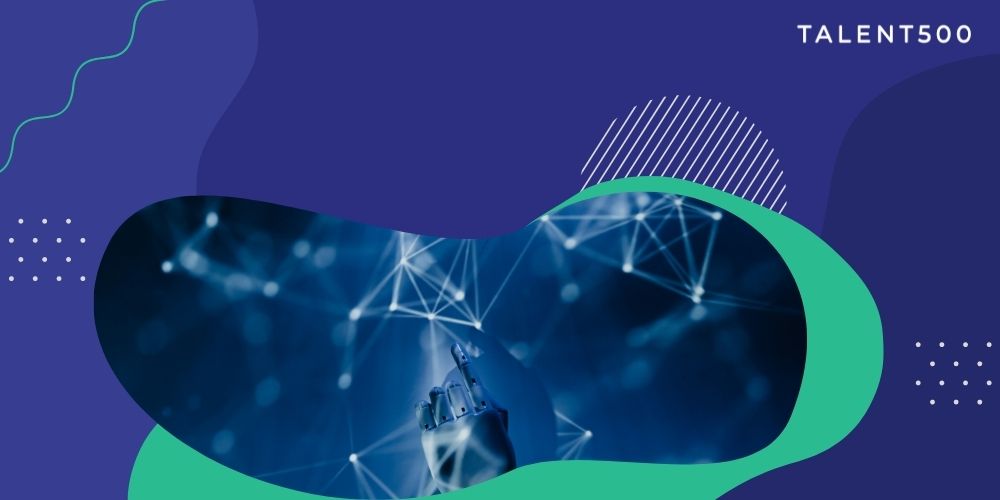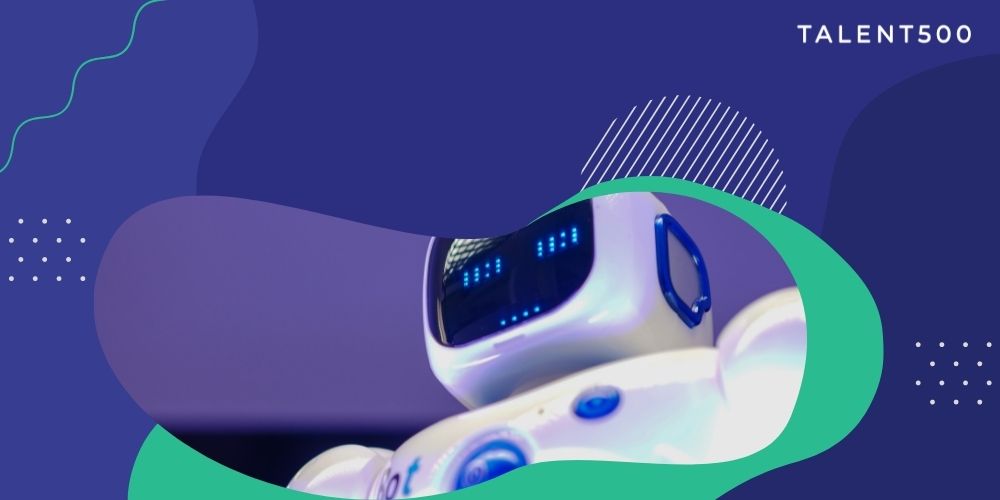Artificial intelligence (AI) statistics from a recent survey show that 91% top businesses surveyed have an ongoing investment in AI. AI is now a part of our everyday lives, more than we may sometimes realize; AI solutions are changing almost every aspect of our lives, and this extends well into the workplace as well. In 2015, just 10% of organizations reported that they either already used AI technology or would be doing so in the near future. In 2019, that number rose to 37%, which means that more than one in three organizations are either using AI or had plans to (Gartner, 2019).
Businesses take up AI technology to increase employee and process efficiency, reduce operational costs, grow revenue, and improve customer experience. In recruiting, AI technology has made it possible to almost entirely automate the process, from finding right-fit candidates to onboarding, the role of AI is beneficial.
Here are the top five benefits of AI in the workplace.
Simplifies the recruitment process
96% of senior HR professionals believe AI has the potential to greatly enhance talent acquisition and retention. A recent study found that 46% of companies struggle with finding and attracting the right candidates for their open positions. Hiring skilled talent can be daunting, expensive, and sometimes, even frustrating. HR departments across industries are tasked with going through piles of job applications for vacancies across the organization. But given that 100% of candidate sourcing and matching can now be automated, this makes the candidate scanning process so much faster and easier. The bottom line is that AI speeds up the entire recruitment process by eliminating the need for manual tasks thereby making a recruiter more productive.
Increases productivity
61% of workers report that the adoption of AI within the workplace has led to a boost in productivity. One of the biggest benefits of AI technology in the workplace is the offloading of repetitive tasks to AI, which gives employees the time to focus on more important aspects of the job. A big way in which organizations have leveraged AI is in providing customer support. Chatbots are becoming increasingly popular to offer 24/7 customer support and as a way of streamlining objectives. These AI-powered bots are fast, accurate, and can provide timely customer support through ‘direct’ interactions with customers. While there might be specific concerns a customer might need addressed from a one-on-one support basis, there are also repeated and frequently asked questions about the company’s services and/or products. AI is exceptionally well-equipped to handle such repetitive tasks enabling employees to be more productive in areas they are needed in.
Empower employees to learn and up-skill
78% of employees say they are ready to learn new skills, but 38% claim they do not have enough time for training. The most critical way in which AI will change the training, learning, and development sector is to establish more optimized and effective training methods and techniques that can be incorporated across the organization. Stephen Walsh, a co-founder of Andres Pink, states that 93% of organizations wish to integrate learning into the routine workflow. This does seem the most efficient and seamless way to learn. However, a key factor to keep in mind is that every person has a different style of how they learn and process (new) information. The best thing about AI technology in learning and up-skilling is that it allows training programs to adapt to the needs of each employee.
Increases data and information security
Organizations, across the board, are increasingly investing in AI-based technology to identify security risks and implement data protection measures to safeguard their assets. 69% of enterprise executives believe AI will be necessary to respond to cyberattacks with the majority of telecom companies (80%) saying they are counting on AI to help identify threats and thwart attacks according to Capgemini. AI and machine learning are poised to help them enhance their security posture because AI technology makes it possible to learn about and analyze potential cyber threats in real-time. Based on this, they employ algorithms to build models of behaviors, and use these to make predictions about potential cyber attacks as new data emerges. Without a doubt, AI is helping companies improve their security defense by increasing the speed and accuracy of their cybersecurity response. AI software tools like Darktrace, SparkCognition, and Exabeam are helping firms to protect their data in digital workspaces and proactively identify security risks to minimize vulnerabilities.
Augmented workforce
A largely misunderstood concept, an ‘augmented workforce’ is a working environment wherein human employees and machines or intelligent virtual assistants work alongside each other to drive increased productivity. For instance, look at how Amazon makes use of advanced warehouse technologies – robotics, cognitive computing and flexible human workforce strategies – to drive efficiency and deliver improved productivity multi-fold.
Chatbots, messaging apps, and project management tools like PeopleDocor and Betterworks use AI to provide recommendations on how workflows can be made more efficient or effective. In a digital workplace, such tools are a requirement to help employees focus more on human-to-human interactions, and to invest their time in creative solutions.
To summarize, AI is integral to businesses today, regardless of sector. 72% of executives believe AI will offer significant business advantages in the coming years, while a LinkedIn study found that 76% of hiring managers believe AI will be at least somewhat important in the future.
Talent500 helps you automate hiring, onboarding, and managing global teams. With our pre-vetted extensive network of talent, you can find the right talent faster. Request a consultation today.


